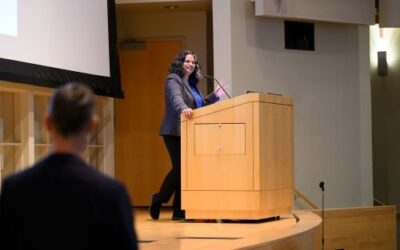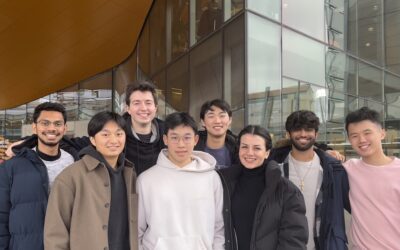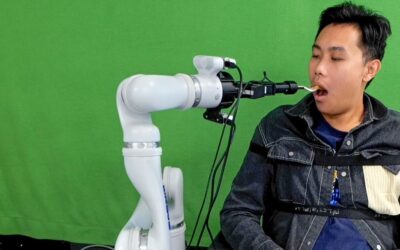New research and an app aim to make Zoom and other video conferencing platforms less stressful for people with speech diversities, while improving the experience for everyone.
Cornell AI News
News Category
Filter by Topic
Help or hindrance? ER robots have potential to aid health care workers
Amid the unpredictability and occasional chaos of emergency rooms, a robot has the potential to assist health care workers and support clinical teamwork, Cornell and Michigan State University researchers found. The research team’s robotic crash cart prototype highlights the potential for robots to assist health care workers in bedside patient care and offers designers a framework to develop and test robots in other unconventional areas.
Virtual, mixed realities converge in new driving simulator
Portobello, a new driving simulator developed by researchers at Cornell Tech, blends virtual and mixed realities, enabling both drivers and passengers to see virtual objects overlaid in the real world.
Successful Artificial Intelligence Event Inspires Large Audience on May 29
The Emerging Tech Dialogues event on May 29, 2024 — the first in a new series — drew more than 750 registrations from Cornell, Weill Cornell Medicine, and Cornell Tech faculty, staff, students, and researchers — all interested in exploring Artificial Intelligence in Higher Education, the symposium’s theme.
Through research and education, Bowers CIS is shaping fairer, ethical AI
In its world-class research and teaching, Cornell Bowers CIS is uniquely positioned to guide tomorrow’s innovators as they dive into issues of ethics, fairness and privacy, while weighing the policy implications of technological advances.
Students win NASA grant to develop AI for safer aerial traffic
The skies may soon be congested with drone traffic. A multidisciplinary team received a grant from NASA to develop new models to coordinate these drones, which may someday deliver packages – or even people.
Robotic system feeds people with severe mobility limitations
Cornell researchers have developed a robotic feeding system that uses computer vision, machine learning and multimodal sensing to safely feed people with severe mobility limitations, including those with spinal cord injuries, cerebral palsy and multiple sclerosis.
AI-generated empathy has its limits
Researchers from Cornell Tech, Cornell and Stanford University found that, despite their ability to display empathy, conversational agents such as Siri do poorly compared to humans when interpreting and exploring a user’s experience.








